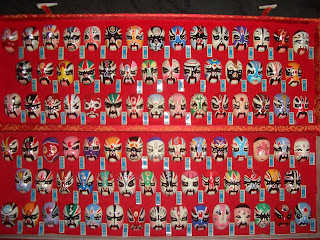Friday, December 24, 2010
Friday, December 17, 2010
Wednesday, December 15, 2010


Saturday, December 11, 2010


Thursday, December 09, 2010
Be sure to consider American Airlines, who just sent me the scariest Christmas card ever.
And this is for real.
What were they thinking?
Converging airplanes are never a good thing.
Tuesday, December 07, 2010
 ONE-LINE REVIEWS
ONE-LINE REVIEWS Friday, December 03, 2010
 MOONCALF-ISH?
MOONCALF-ISH?What have I learned from Korean drama? Some King's English!
While watching Muhyul, (at right) via dramafever.com (highly recommended), I have been enjoying subtitles that are by and large grammatically excellent, well punctuated, and I can only hope, more or less accurate. The subtitling team actually takes credit for its work. (The Written in the Heavens Subbing Squad, aka WITHS2). But there is a curious tendency, like in the King James Bible, written the way it is to emphasize antiquity, to employ terms that I'm not sure even Shakespeare ever penned. Certainly nothing I've ever used, lyrical epithets, some of which you may recognize, but others which sent me to my OED. I hope to work some of these into corporate memos and telephone conversations:
- you anserine...innoxious ...undextrous... dullards
- you miserable begonians
- you yeasty slattern
- those facile runagates
- you inutile (not a word I can find, but perhaps a pesky Taoist)
- you fatuitous man
- he's a pertinacious specimen
- you ruthful nimwit
- you wretched dotard
- he's a felonious scapegrace
- those comiserable rapscallions
What is this audacious pertness? Why did you beguile me with such:
- mendacious trifle
- dastardly prodigality
- heedless nimiety
- shady celerity
- uncanny diabliery
At which point a warning may be issued that someone will "cark himself "(or perhaps, "cark you!"), asking forgivenss of his "peccancy," excusing himself to "micturate" while "perlustrating the intelligence." (I think this might mean taking a piss while considering the state secrets he has been entrusted with and possibly divulged.)
In light of such "ludicrous jabberwocky," due to a "fruit of my misreckoning," a battle fails despite someone having sent "oodles of troops." (Though that last one must have come during a quick ramen lunch away from the Oxford Korean-English Dictionary of Archaicisms.)But my favorite phrase is "you harebrained mooncalf" which I have been employing recently as an acronym, HBMC.
Which is what I was wondering if I was, hoping not, when I noticed on my very cool iPad app called Luan, which puts the phases of the moon at one's fingertips, that today --my birthday (or as a spiritually inclined friend put it, the anniversary of my incarnation) --is the last waning crescent moon, which precedes the dark moon of Saturday, and the new moon on Sunday. I wasn't sure what a dark moon was but according to Wikipedia it is "the moon during that time that it is invisible against the backdrop of the sun in the sky. The duration of a dark moon is between 1.5 and 3.5 days, depending on the orientation of the Earth and Sun.
"In astronomicial usage, the new moon occurs in the middle of this period, when the moon and sun are in conjunction. This definition has entered popular usage, so that calendars will typically indicate the date of the 'new moon' rather than the 'dark moon.' However, originally 'new moon' referred to the crescent on the first night it is visible, one or two days after conjunction. Maritime records from the nineteenth century distinguish the dark moon (no moon) from the new moon (young crescent)."
The darkmoon, also called the dead moon (kinda creepy following my birthday) is regarded as preparation for the new beginning that begins with the new crescent.
So, I'm wondering if I'm just a harebranined mooncalf for paying any attention to this, or is it kind of cool. Old age is new age?
Speaking of Muhyul, (Jumong/Haesin Redux) it's everything I hoped for. Lots of Song Il-guk, on a horse, shooting arrows, gazing into his doomed lover's eyes, mowing down everyone with a sword. Well, if this gets me going, I guess I'm not THAT old.
Jumong & Haesin (Muhyul above)
Sunday, November 21, 2010
"Hecker said his first glimpse of the North's new centrifuges was "stunning."...The facilities appeared to be primarily for civilian nuclear power, not for North Korea's nuclear arsenal, Hecker said. He saw no evidence of continued plutonium production at Yongbyon. But, he said, the uranium enrichment facilities "could be readily converted to produce highly enriched uranium bomb fuel.""From my perspective, it's North Korea continuing on a path which is destabilizing for the region. It confirms or validates the concern we've had for years about their enriching uranium," Mullen, the top U.S. military officer, said on CNN's "State of the Union."
Saturday, November 20, 2010
 NAKED NUDE AMBITIONS****
NAKED NUDE AMBITIONS****Saturday, November 13, 2010

Thursday, November 11, 2010

Saturday, November 06, 2010
Saturday, October 30, 2010
Monday, October 18, 2010
Moon Goddess Tradition
Sunday, October 17, 2010



Monday, October 11, 2010

Saturday, October 09, 2010
**Subtitles and heavily accented English provide surely unintended entertainment. At one point in the story, Vivian, a gorgeous woman, yin to SIG's yang, who plays the Korean-Hawaiian connection, asks the hero, whom she has betrayed badly, "to have mercy on her soil." Also, she invites some businessmen anticipating high "levenues" (leveraged revenues?) from her project, on a tour of the planned island real estate development. "We can go up to the deck and then have a little butt cruise," she purrs in heavily accented English. Not making this up.









